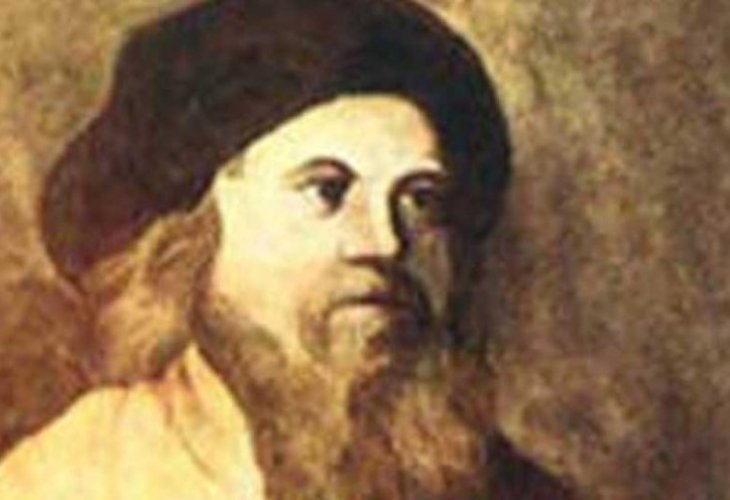Torah Personalities
The Maggid of Mezeritch: Life, Teachings, and Legacy of Rabbi Dov Ber
His biography, mystical teachings, greatest disciples, and the enduring influence of the second-generation Chassidic master
 The Baal Shem Tov
The Baal Shem TovRabbi Dov Ber (son of Rabbi Avraham), known as the Maggid of Mezeritch, was a leading Chassidic master of the second generation of the Chassidic movement and the primary disciple and successor of the Baal Shem Tov.
He was born to Avraham and Chava in the town of Lukatch near Rovno in Ukraine. His father was a descendant of Rabbi Yochanan HaSandlar. The family lived in poverty; his father worked as a simple teacher. Following the advice of the local rabbi, young Dov Ber was sent to Lviv to study under the great scholar Rabbi Yaakov Yehoshua, author of Pnei Yehoshua.
Marriage and Personal Challenges
Rabbi Dov Ber married Rebbetzin Kayla. They lived in a small, dilapidated home, and the Maggid suffered greatly from leg illnesses. For many years they had no children. When he reached age 36, his wife suggested he divorce her so he could remarry and have children. The Maggid refused.
Becoming a Disciple of the Baal Shem Tov
Following the advice of the Pnei Yehoshua, he traveled to Mezhibuzh to seek out the Baal Shem Tov. There he became one of his closest and most devoted disciples. The Baal Shem Tov promised him a great and holy son — and indeed, in 1741, their son Rabbi Avraham “the Angel” was born.
Successor of the Baal Shem Tov
After the Baal Shem Tov’s passing, Rabbi Dov Ber became a central leader of the Chassidic movement. Unlike his teacher, who traveled from town to town, the Maggid settled in Mezeritch and sent out his disciples to spread Chassidut across Poland and beyond. By 1765, three major early Chassidic centers were established:
Lubavitch (led by Rabbi Yissachar Ber of Lubavitch)
Karlin (led by Rabbi Aharon and Rabbi Shlomo of Karlin)
Horodok (led by Rabbi Menachem Mendel of Vitebsk)
The Great Aliyah of the Chassidim
From the Maggid’s beit midrash emerged the first major Chassidic aliyah to the Land of Israel, led by his greatest students. Although the Maggid himself wished to move to Eretz Yisrael, he was prevented from doing so by divine decree.
His Influence as a Preacher
Early in his career he traveled and preached widely across Russia and Poland, urging Jews to avoid assimilation and stay loyal to their sacred traditions. His powerful voice and fiery words stirred listeners to heartfelt devotion. People across the region loved and revered him for his purity, humility, and warmth.
His Central Teaching: Godliness in All Reality
A cornerstone of the Maggid’s philosophy is the idea that all reality is a manifestation of the Divine Presence. In Maggid Devarav LeYaakov he teaches:
Every part of reality contains a spark of God.
God is the inner life-force of everything, not an external cause.
Creation is an ongoing Divine emanation.
“There is no place devoid of Him.”
Earthly, material things also express God's glory.
This worldview emphasizes the absolute unity of creation, in which all existence flows from one spiritual source.
His Great Disciples
Many of the greatest Chassidic masters were students of the Maggid, including:
Rabbi Menachem Mendel of Vitebsk – leader of the Aliyah, author of Pri HaAretz
Rabbi Shneur Zalman of Liadi – founder of Chabad, author of Tanya
Rabbi Avraham “the Angel” – his son, author of Chesed LeAvraham
The Chozeh of Lublin – Rabbi Yaakov Yitzchak Rabinowitz
Rabbi Levi Yitzchak of Berditchev – author of Kedushat Levi
Rabbi Elimelech of Lizhensk – author of Noam Elimelech
Rabbi Zusha of Anipoli – author of Botzina D’Nehora
Rabbi Shmelke of Nikolsburg
Rabbi Pinchas Horowitz – the Hafla’ah
Rabbi Aharon the Great of Karlin – founder of Karlin Chassidut
Rabbi Baruch of Mezhibuzh – grandson of the Baal Shem Tov
Rabbi Yisrael of Kozhnitz – the Kozhnitzer Maggid
Rabbi Aryeh Leib of Shpoli – the Shpoler Zeide
Rabbi Yosef Bloch of Sotnov – author of Ginzai Yosef
His Writings
Although the Maggid himself did not write books, his teachings were recorded by disciples. These works include:
Maggid Devarav LeYaakov (collected and edited in his lifetime)
Or HaTorah
Or HaEmet
Darkei Yesharim
Shmuat Tovah
Likutei Yekarim
Igerot Kodesh (letters from the Maggid and his disciples)
Famous Teachings
Among his well-known sayings:
“Know what is above you” — understand that everything happening above is influenced by your own spiritual work.
“Every lock has a key, but some strong thieves can break the lock — God loves the one who breaks his heart for His sake.”
“Learn three things from a child: he is joyful without reason, never idle, and asks boldly for what he needs.”
“In exile, the Divine Presence rests more easily on a person than when the Temple stood.”
“Just as oil is hidden inside the olive, so teshuvah is hidden inside the sin.”

